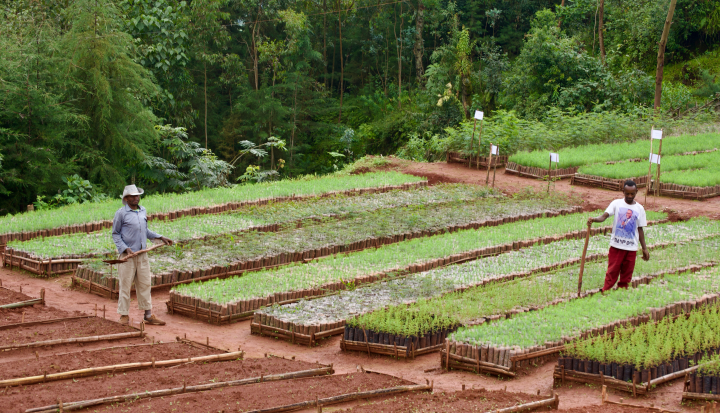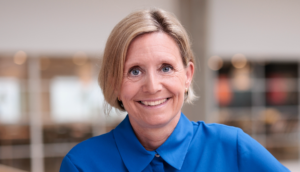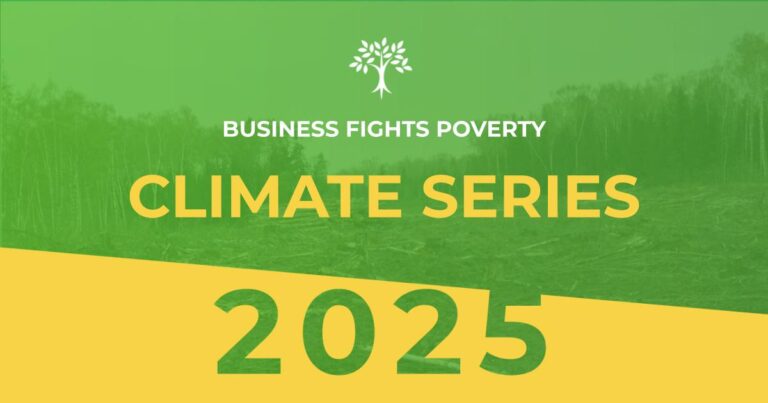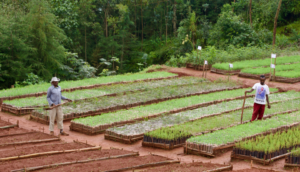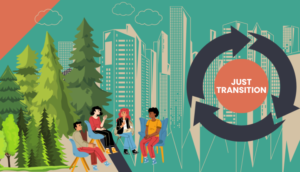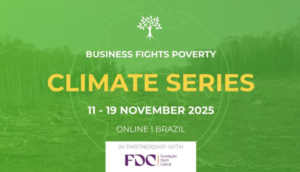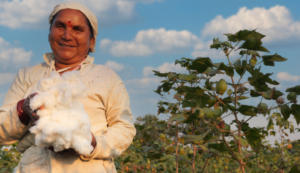The global economy is being redefined by climate change, demographic upheaval, dramatic shifts in development financing, and prolonged conflicts. The world faces a generational challenge as these waves of instability threaten to erase decades of development progress. At the core of this challenge is the lack of climate and development finance reaching the most vulnerable places, where the need and potential for impact are greatest. In addition, global agrifood systems remain one of the most underfinanced and climate vulnerable sectors. As ISF Advisors notes, less than eight percent of global climate finance reaches food and land systems, leaving more than one trillion dollars in unmet annual need. This chronic underinvestment in nature-based solutions (NbS) and smallholder adaptation threatens to deepen fragility across entire regions and raises a critical question for investors and companies: how to collaboratively deploy capital where the need, perceived risk, and potential returns are greatest?
Within this context, Nuru envisions a pathway where professional cooperative agribusinesses are a critical pathway to overcoming the high transaction costs of working with individual smallholder farmers, bringing their productivity, asset base, land, workforce power, and untapped potential to the forefront of NbS and capital mobilization. The Nuru Collective, a network of locally-led NGOs that are globally connected and deeply rooted in rural communities, exists to implement this solution in the most vulnerable landscapes. Nuru focuses where the need, perceived risk, and potential returns are greatest by working in frontier landscapes where regenerative agriculture and cooperative agribusiness can restore ecosystems, build resilience, and catalyze private investment for long term stability.
With the right investment, these semi-arid and mountainous regions hold vast potential for high value commodity tree crops such as cashew, shea, moringa, and others, complemented by legume based mixed farming systems that rebuild soil health and support staple crop production improvements. These types of regenerative production systems are a cornerstone of Nuru’s poverty alleviation strategy, integrating sustainable livelihoods with climate resilience.
Through a strategic approach to Identify, Strengthen, and Connect, Nuru transforms vulnerable rural communities into durable, investable local economies that anchor peace, prosperity, and growth.
- Identify: Anchoring Resilience in the Hard Places
Nuru rigorously identifies communities that exist at a stability tipping point of vulnerability. These locations, fragile sub-regions within countries, are often referred to as “Yellow Zones”, or areas near conflict that are highly vulnerable to slipping into full-blown instability if abandoned. The biggest challenge in these sub-national zones is the exodus of capital due to risk. Leaving valuable commodities and NbS investments to rot on the vine.
Instead of abandoning them, Nuru champions investment in these strategic frontiers where climate resilience, peace, and inclusive economic growth are directly threatened by inaction.
- Strengthen: Building Investable Local-Led Agribusinesses
Nuru strengthens identified communities by transforming subsistence farmers into thriving business owners. This is achieved by promoting regenerative production systems while building profitable, professional cooperative agribusinesses.
- Sequenced Support: The model is a five-to-seven-year sequenced approach that transitions from initial design (Year 0-1) to profitability and external investment readiness (Years 5-7).
- Professionalization: Cooperatives receive intensive support aligned with global guidance and standards like ISO 18716, strengthening the capacity, transparency, and governance needed to function as durable market actors.
- Measurable Impact: This process delivers tangible results. Across all Nuru countries, supported farmers see an average annual income increase of 31% year-on-year. In Ethiopia, all supported cooperative unions achieved profitability in 2023, reflecting the model’s strength and sustainability.
- Connect: De-Risking Capital for Nature and Stability
The Strengthen phase prepares these professional agribusinesses to successfully Connect to larger markets, institutions, and, critically, long-term nature-positive finance streams. Through our partnership with Viridian Ecosystems, Nuru is advancing innovative approaches in technical assistance and blended finance that build lasting impact with the smallholder farmers and pastoralists, the land managers in these frontier markets.
Ethiopia serves as Nuru’s most advanced proving ground to build high quality projects in line with the ICVCM Core Carbon Principles. Here, the cooperative model is being leveraged to funnel capital into NbS:
- Climate Smart Ecosystems: Nuru integrates regenerative agriculture, agroforestry, and climate smart practices to restore degraded landscapes, strengthen biodiversity, and align livelihood growth with climate goals.
- De-Risking Function: A layered blended finance structure channels catalytic grants and concessional funding to de-risk early stage projects, attract private capital, and scale high integrity, community led agroforestry and carbon initiatives.
- Equitable Returns: The model aims to deliver the majority of revenues, especially from carbon markets, directly to cooperatives and the local members, embedding fairness and durability at the heart of local climate and livelihood solutions.
By providing professionalization, transparency, and credible standards, Nuru serves as the critical bridge between finance and the field, helping to reduce risk and unlock much-needed private investment into communities that are too important to fail.
Photo Context: Tree nursery established in partnership with Hidota Cooperative Union in South Ethiopia Regional State to support the outplanting of 300,000 trees over 3 years.
This article is part of the Business Fights Poverty Climate Series with Fundação Dom Cabral (FDC) taking place during COP30 Climate Summit in Belém, Brazil.
